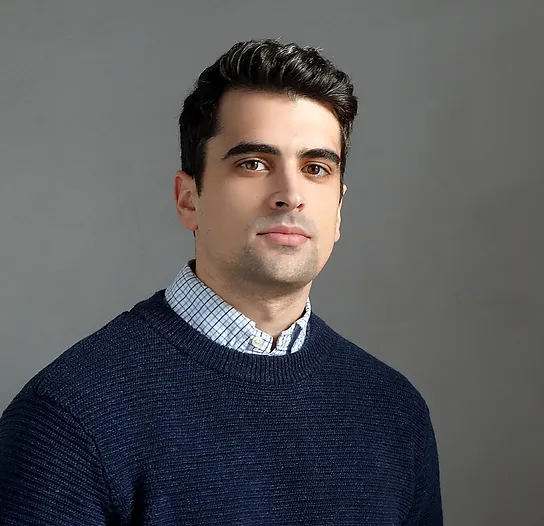Pierre is a leading college and graduate admissions consultant with extensive experience in education and entrepreneurship. His advice has been featured on Forbes.com, U.S. News, CNN Business, the Washington Post, ABC News, Business Insider, and more.

After coming up with a topic (see my post here on coming up with one if you don’t yet), putting words on a page is an intimidating step. Students with primarily academic writing experience sometimes default to the standard boring introduction, structured body paragraphs, and summary conclusion of an English or history essay, but creative writing requires a completely different approach, as well as an understanding of the different ways to structure an essay.
Identifying Relevant Content
Knowing I wanted to write my personal statement about my passion for science and my future as a biological researcher, I began by listing my relevant activities. I had participated in science olympiad, chemistry club, and research internships, and I started to realize that these fit into a nice linear narrative of increasing involvement in science. Hopefully, if you’ve been effectively developing in regards to whatever topic you’ve chosen, you have multiple relevant activities, moments, or habits from your life you feel ready to discuss.
Beyond these high school activities, consider things before high school or outside of high school that also relate. If you’re interested in political science, your AP Government project may be relevant, but so is your love of reading the news, the protest you attended, and anything else that you’ve participated in or has affected you. If your topic is your piano playing, do you jam Shostakovich on the bus ride home, practice on your binder in calculus, or discuss your favorite pieces with friends? As we’ve discussed before in 3 Tips for Beginning Your College Essay, “Terrific college essays have been written about breakfast routines, family TV viewing rituals, and Dad’s driving habits.” When does your chosen topic manifest in your life?
You may have a very different list of academic and personal events related to your topic, but my list ended up looking like this:
Elementary School: My dad mumbles about his work as a scientist to me.
Middle School: I take eighth-grade biology.
Sophomore Year: I stopped taking band, and instead doubled down on science electives—biology and physics. I loved learning about the biological mechanisms of the animals and plants all around me. I joined Chemistry Club.
Sophomore Summer: I interned at the National Institutes of Health studying alcoholic liver disease.
Junior Year: I competed in our Science Olympiad club.
Junior Summer and Senior Year: I worked in a lab researching prostate cancer.
You almost certainly won’t end up including all of them, but right now it’s just about brainstorming things you might want to talk about.
Fleshing out Individual Stories
Next, think about a few key details that exemplify each of the elements of your timeline. To have a compelling story, you need to say more than “I took eighth-grade biology.” Try to come up with specific moments that embody each of the elements on your list. What cool stuff did you learn in that class that made you love history? What about that Model UN event in 10th grade made you want to pursue a career in politics? What did you discuss with your dad that one drive home that changed your perspective on psychology? Again, remember that these events don’t have to be impressive, but they do need to be important to you. Try to figure out how each of these elements of your list affected you (If they didn’t affect you, take it off the list!).
For example, my favorite parts of eighth-grade biology were creating glowing cells by putting a gene into bacteria, seeing cells through a microscope, and learning about the evolutionary tree of life. What was most interesting to me, which I only later realized, was the relevance of the class to how I understood myself—as an organism made up of cells expressing genes evolved over billions of years. In my final common app essay, the paragraph about my burgeoning love of science in eighth grade looked like this:
“The eighth grade first introduced me to a passion for science. While examining my own cheek cells under a microscope, I made a sudden connection: we were learning about me—my hands, my toes, my ears, all made up of these tiny spheres working to keep me alive. I was awestruck considering the millions of miniature factories straining to produce energy every time I blinked or picked up a pencil and even more captivated recognizing that the same stunning intricacy existed hidden in the plants and animals all around me.”
At this stage, you don’t need anything so refined, but your goal here should be to identify your moments/periods of epiphany, realization, or sudden change. The elements of your list that you don’t remember much about probably don’t belong in your essay.
Connecting them
To join these elements into a cohesive narrative, you’ll want to summarize the importance of each in a way that sets up the next. I ended the above paragraph from my essay with “My perspective on the world quickly evolved as I began to see every organism as a unique creation of natural selection,” before quickly moving on to describe my decision to change my electives to science courses in my sophomore year. This decision makes sense because of the context provided—that I began to see the world from the perspective of a scientist and loved learning about science.
Think to yourself about what motivated each of the important events you identified in your timeline. Why did you choose to volunteer at a hospital instead of any of the other many ways to get community service hours? Why did you take one class instead of another? These decisions may not have seemed significant at the time, but you may be able to better understand them now. This intricate understanding of the narrative arc of your life is critical when trying to give a reader, in 650 words or less, an idea of where you’re going.
You don’t have to include all of these timeline elements in your essay—you can certainly focus on just one, or two, or any number, but you want to make sure you have enough content to give the reader a clear picture of who you are. I would not have been able to do that by only talking about my high school classes or my lab internship, so I chose to write about a number of important events. For you, maybe a single more sustained activity over the course of your life or a highly-significant short-lived one can be equally as informative for the admissions officers—that is for you to decide. Either way, you want to have a clear idea of the role everything you mention in your essay played in shaping your future for a cohesive story.
Summary
Once you have a topic, drafting an effective essay requires thoughtful consideration of what events from your life are meaningful and relevant, not just throwing words on a page.
First make a list of the important events—classes, extracurriculars, moments, and anything else.
Then, try to identify interesting details about these, both to help you write about them and to nail down what made them important.
Choose the most significant timeline element/s for your essay, and make sure to connect the ones you include to a broader notion of yourself. In short, give the reader an idea of why you’ve done some of the things you’ve done and what you’re going to do.
If you need help brainstorming, drafting, or reviewing your Essays reach out to us to see how college admissions consultants can help.




